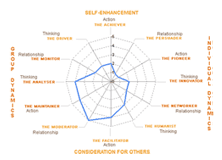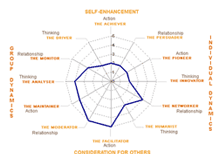
 |
 |
 |
 |
 |
 |
 |
How does globalisation impact on people dealing with the practical realities of complex, technical issues raised by a growing, global customer base? Through a SPM Online partner, two teams, in a large IT company, envisaged their future and brainstormed new ways of working. Where once there was a lack of communication and understanding, the teams now work in tandem to solve technical issues that stop the bigger business of the group falling over. "You need to think about working differently to get a more efficient process going," said one satisfied delegate.
"We are now able to move ahead and take advantage of new technologies and ways of working," says the Global Services Delivery Manager. Previously, when there were technical problems and individuals were reluctant to take overall ownership, issues got dealt with depending on the level of importance. Now, people feel empowered to take responsibility, diagnose the expertise required and stay with the problem until it is solved. Communication has improved and the teams are discussing ways that they can continue to make this even better. This improves efficiency, saving the company both time and money.
The programme enabled delegates to grasp the harsh realities of technical changes and a customer base that would grow from 3,500 in the UK to 18,000 within eight months, globally. They would need to be dedicated, proactive and skilled technicians, able to work as one team, in a new 24-hour global data centre. "We focused on getting individuals to understand what they needed to do in order to acknowledge change and grip it fast!" stated Leading Facilitator.
Communication styles Chart |
Work Values Chart |
|
 |
 |
Understanding themselves and what they could offer was a critical part of the work reinvention programme. Using the SPM, they were able to discover not only what their underlying work values were, but also how their colleagues viewed their behaviour at work. What was more revealing was seeing their team profile. Lots of people within the two teams were great analysts and maintainers, but few were creative innovators or persuasive leaders, skills necessary to develop and implement new work practices. Knowing and understanding this has helped the company plan towards placing people in roles that better suit their competences and has shown them where they needed people with particular skill sets if they wanted to achieve their business objectives.

